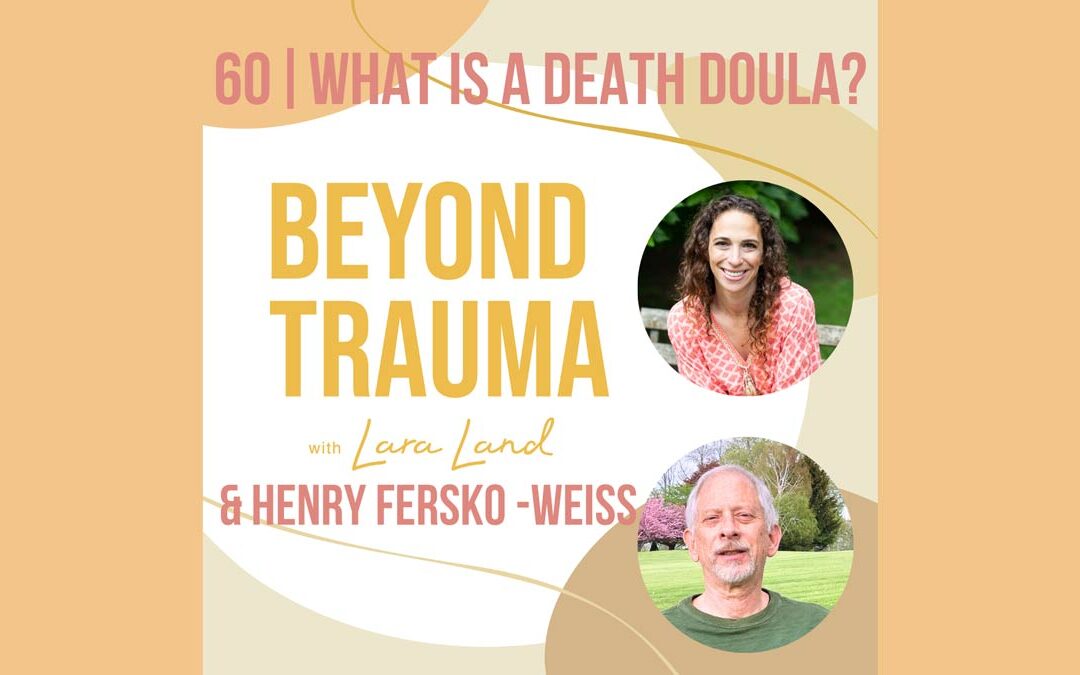
Understanding the Role of a Death Doula: The Pioneering Work of Henry Fersko-Weiss
What is a Death Doula?
A death doula, also known as an end-of-life doula, is a trained professional who provides holistic support to individuals and their families as they navigate the dying process. Unlike traditional medical personnel, death doulas focus on the emotional, spiritual, and practical aspects of dying, ensuring that the experience is as peaceful and meaningful as possible.
The Role and Responsibilities of a Death Doula
- Emotional Support: Death doulas offer a compassionate presence, listening to the fears, hopes, and regrets of the dying person. They provide comfort and reassurance, helping individuals to find peace and acceptance.
- Spiritual Guidance: Respecting diverse beliefs and practices, death doulas assist in addressing spiritual concerns, facilitating rituals, and creating a sacred space for the dying process.
- Practical Assistance: From helping with advance directives to coordinating care, death doulas manage practical tasks that alleviate the burden on the dying person and their loved ones.
- Legacy Projects: They help individuals create meaningful legacies, such as writing letters, recording memories, or making art, which can be cherished by loved ones.
- Family Support: Death doulas provide guidance and emotional support to family members, helping them cope with their grief and ensuring they feel included in the process.
Henry Fersko-Weiss: A Visionary in End-of-Life Care
Henry Fersko-Weiss is a pioneering figure in the death doula movement. As a licensed clinical social worker and the co-founder of the International End of Life Doula Association (INELDA), he has dedicated his career to transforming how we approach death and dying.
Key Contributions and Works
- Founding INELDA: In 2015, Fersko-Weiss co-founded INELDA, a non-profit organization that provides training, certification, and resources for death doulas. INELDA’s mission is to enhance the end-of-life experience through the compassionate presence and support of trained doulas.
- Authoring “Caring for the Dying”: Fersko-Weiss authored “Caring for the Dying: The Doula Approach to a Meaningful Death,” a seminal book that outlines the principles and practices of the death doula profession. The book offers practical advice and personal stories, shedding light on the profound impact doulas can have on the dying process.
- Advocacy and Education: Through workshops, seminars, and public speaking, Fersko-Weiss has educated countless individuals and healthcare professionals about the importance of holistic end-of-life care. His advocacy efforts have helped to raise awareness and acceptance of death doulas within the broader community.
- Innovative Programs: Fersko-Weiss has developed and implemented innovative end-of-life programs in various healthcare settings, including hospices and hospitals. These programs integrate the doula approach, emphasizing emotional and spiritual care alongside medical treatment.
The Impact of Death Doulas
The presence of a death doula can profoundly impact the dying process, offering a sense of calm, dignity, and meaning. Families often report feeling more supported and less overwhelmed, while individuals facing death can find solace in the presence of someone dedicated to their well-being.
How to Become a Death Doula
For those interested in pursuing this compassionate profession, here are some steps to get started:
- Training and Certification: Henry has both inperson and online trainings coming up..
- Personal Qualities: Cultivate qualities such as empathy, patience, and active listening. Being present and comfortable with the emotions and experiences of others is crucial.
- Continued Education: Engage in ongoing education and self-reflection. The field of end-of-life care is continually evolving, and staying informed about new practices and insights is essential.
- Networking and Support: Connect with other death doulas and professionals in the field. Joining organizations like INELDA can provide valuable resources, support, and opportunities for collaboration.
The role of a death doula is a profound calling that brings comfort, peace, and meaning to the dying process. Learn more about becoming or hiring a death doula and Henry Fersko-Weiss’s pioneering work on the latest episode of the Beyond Trauma podcast. Please make sure to write us a review and rating to help us be found in the podcast libraries.

Recent Comments